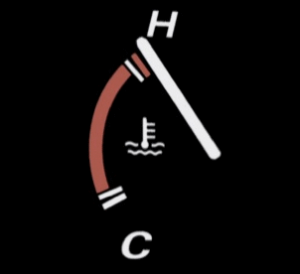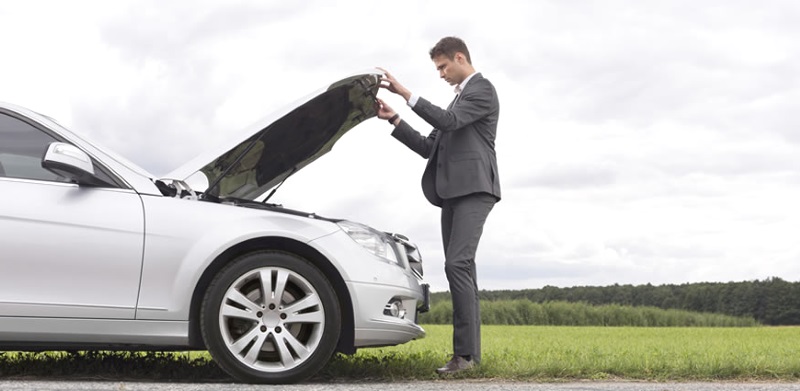What happens when your car overheats?

Overheating happens when the engine reaches higher temperatures (generally above 100 degrees Celsius). This can happen for several reasons, but it can usually be attributed to a problem in your cooling system. Overheating can be detected by looking at your car’s temperature gauge.
When your car overheats, engine components such as the head gasket or cylinders are prone to cracking or warping. For this reason, it is not recommended that your drive an overheating vehicle. The cost of a tow truck will be much less than the cost of an engine replacement!
Learn more about what happens during overheating >
Common causes of overheating:
There are several different things that can cause your car to overheat, with most of these things resulting in your engine being starved of oil or coolant. Common symptoms of overheating include:
Damaged thermostat – The thermostat detects your engine temperature and opens/closes to let coolant into your engine. If the thermostat becomes stuck shut, coolant won’t be able to reach the engine, resulting in it overheating.
Learn more about thermostats >
Coolant leak – A leak in your cooling system can starve your engine of coolant, resulting in overheating. Coolant leaks can be diagnosed by looking for small puddles underneath the front of your car.
Learn more about coolant leaks >
Low oil levels – A car that is low on oil can be prone to overheating. This is because oil helps to carry heat away from the engine. Low engine oil can also cause increased engine wear due to the moving parts not being lubricated properly. This can also cause overheating.
Broken water pump – The water pump helps to pump the coolant through the engine. If anything goes wrong with the water pump, your engine will not receive the necessary amount of coolant and overheat.
Very hot weather – In some cases, if the weather is very hot and your cooling system is partially blocked, this can cause your temperature gauge to rise higher than normal.
What to do if your car overheats?
If your car’s temperature gauge is reaching high levels, try to avoid driving until your vehicle can be repaired. Overheating will damage your engine, especially if you continue to drive normally.
Examining your coolant may help you diagnose the problem. However, you should never remove the radiator cap while the car is still warm. Let the car cool down for a few hours to avoid burns and injuries.
Overheating Car Repairs in Hamilton
At Grimmer Motors, we can perform repairs on your vehicle’s engine and cooling system, preventing it from overheating. Our mechanics are quick to diagnose cooling system problems and can provide you with quality repairs you can rely on.
We offer the following services:
and much more.
For quality, reliable repairs for your overheating vehicle, contact Grimmer Motors today!

